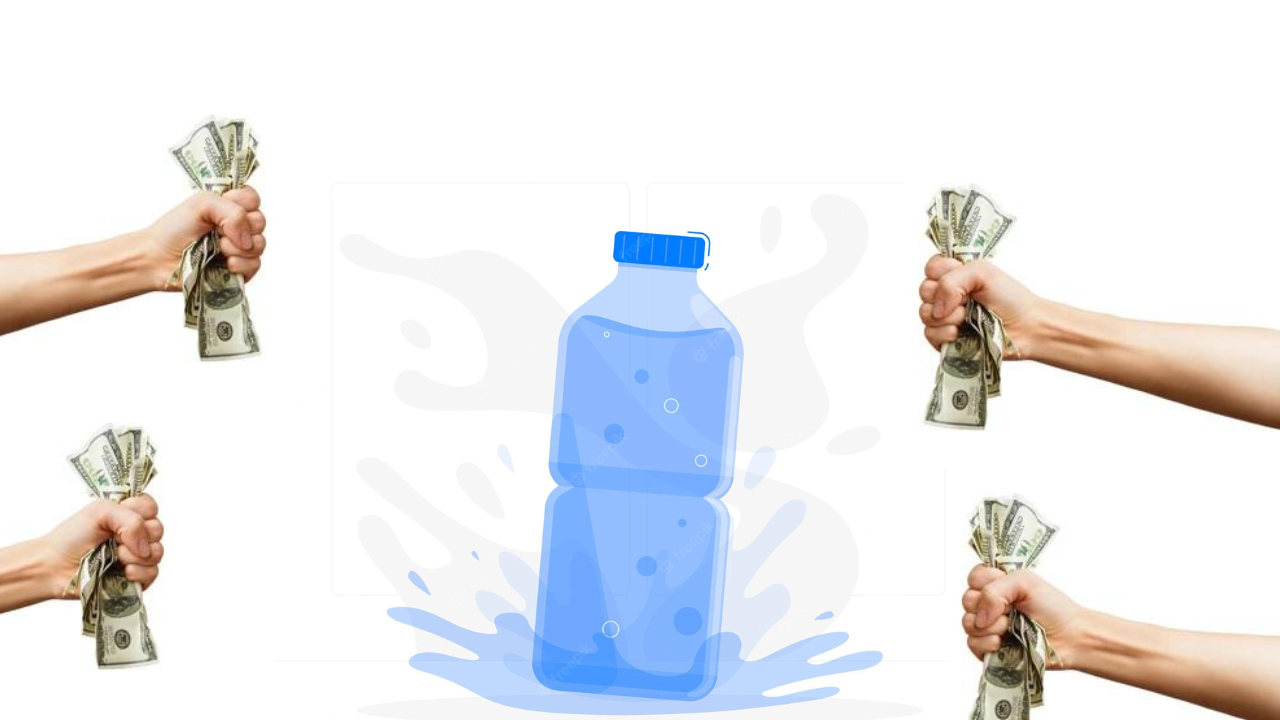How many times has it been that you have bought a ₹10 or ₹20 water bottle? And why is it that 90% of the time is it a bottle of water turned out to be manufactured by Bisleri?
Most of us consider water as synonymous with Bisleri. In fact, the name is so popular that almost every citizen of India at this point has heard about it somewhere or the other.
But what really is the history of Bisleri?
See, most times, different people have different opinions about the origin of Bisleri and how it became a household name. But let’s not cave into opinions or theories today and let’s dive into some facts.
The story
Something we know for sure right now is that back in the 1800s in Italy, a former Army General, Felice Bisleri, set up the eponymous Felice Bisleri and Co to sell a type of liqueur, which was basically a herbal concoction of cinchona, herbs and iron salts that he called ‘Ferro-China Bisleri’.
Felice Bisleri & Co flew and was really successful. In the 1920s, the company even started setting up plants in India.
However, from here, things started to change. Media claims that Felice Bisleri died in 1921, after which the ownership passed to the family doctor, Dr. Cesare Rossi.
But there’s no proof of that. This is because another account from the famed auction house Sotheby’s portrays a very different narrative. In their version, Dr. Cesare Rossi is a textile/fabric wizard who moved to India in 1953 and set up South India Viscose Ltd.
Why did a family doctor turn into a textile wizard? Who knows? Why did he come to India to look after the Bisleri plants? Who knows? But did he own Bisleri?
Well…
The Sotheby’s article also points out that Felice Bisleri’s son-in-law General Cacceiandra was reviewing Bisleri factories after the second world war. And that’s when Dr. Rossi and General Cacceiandra began discussing the prospect of selling bottled water.
So maybe, Dr. Rossi did after all own Bisleri.
What happened over the next 12 years, nobody knows. After that, we straight away went to 1965 when Dr. Rossi started selling bottled water. He decides to partner with Khushroo Suntook, a lawyer with a rich Parsi business heritage to manufacture bottled water. They realized that “the water quality back then was so bad in Bombay that people would get bad tummies…”.
The goal was to deliver clean and bottled drinking water. So they set up a plant in Thane.
They distilled water and marketed it as mineral water. And this water was sold to five-star hotels and restaurants.
The business seemed to be booming. And in 1969, Jayantilal Chauhan, owner of the Parle Group, took over.
The group was looking to add a soda brand to its product portfolio and Bisleri seemed like the perfect fit. Parle bought Bisleri for about ₹4 lakhs.
Now here’s another riddle for you to solve. See, according to BusinessToday, the current chairman of Bisleri Ramesh Chauhan said that Parle acquired Bisleri to get their hands on Bisleri Soda which was already popular. He said this in 2008. But in an interview with Rediff in 2005, Ramesh Chauhan apparently said they simply used the Bisleri brand name and then launched Bisleri soda! So, who actually launched the soda? Was it Bisleri or was it Parle? We don’t know.
Either way, the goal seemed to make soda over water. That’s what Parle was doing after all, as they were launching carbonated drinks like Limca.
But then in the 1990s, India opened its doors to foreign players and Coca-Cola and Pepsi came in hot. Parle felt the heat and decided to switch back to carbonated water.
They had no option but to innovate and grow the business. Till then, they were focused on selling 20-liter cans to offices and other institutions. But in 1995, they launched the easy-to-carry and now ubiquitous 500ml bottle. It became accessible to a lot more people. The goal was to sell clean water.
The big game changer in this scenario was that since transporters didn’t find it easy enough to carry truck loads of water cans across long distances, Bisleri set up its own trucking network and made distribution easier to all parts of the country.
Fast forward to now, Bisleri is a household name with a 30% market share in the organized bottled water market with 4,000 distributors and 5,000 trucks.
And in FY20, it hit ₹1500 crores in revenues with ₹100 crores of profits. However, with the current chairman Ramesh Chauhan in his 80s and no family member to take over the business, the former Italian water brand is now set to welcome another set of owners to continue its legacy in India.
Tata wants a piece and is eager to take up the business. What happens next is what we’re curiously looking forward to.











